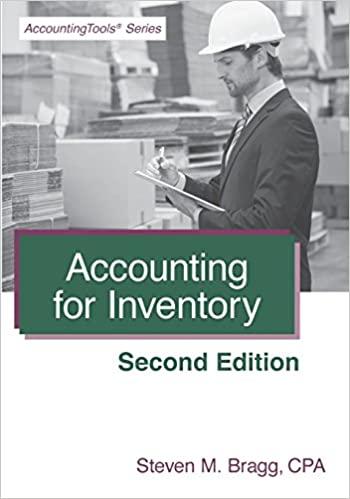Question
Presented below are two independent situations related to future taxable and deductible amounts resulting from temporary differences existing at December 31, 2020. 1. Pearl Co.
Presented below are two independent situations related to future taxable and deductible amounts resulting from temporary differences existing at December 31, 2020. 1. Pearl Co. has developed the following schedule of future taxable and deductible amounts.
| 2021 | 2022 | 2023 | 2024 | 2025 | |||||||
| Taxable amounts | $200 | $200 | $200 | $200 | $200 | ||||||
| Deductible amount | (1,700 | ) | |||||||||
2. Martinez Co. has the following schedule of future taxable and deductible amounts.
| 2021 | 2022 | 2023 | 2024 | ||||||
| Taxable amounts | $200 | $200 | $200 | $200 | |||||
| Deductible amount | (1,800 | ) | |||||||
Both Pearl Co. and Martinez Co. have taxable income of $3,600 in 2020 and expect to have taxable income in all future years. The tax rates enacted as of the beginning of 2020 are 30% for 20202023 and 35% for years thereafter. All of the underlying temporary differences relate to noncurrent assets and liabilities. 1. Compute the net amount of deferred income taxes to be reported at the end of 2020, and indicate how it should be classified on the balance sheet for situation one.
| Deferred income taxes to be reported at the end of 2020 in Pearl Co. | $ |
| Deferred income taxes to be reported at the end of 2020 in Martinez co. | $ |
2. Compute the net amount of deferred income taxes to be reported at the end of 2020, and indicate how it should be classified on the balance sheet for situation two.
Step by Step Solution
There are 3 Steps involved in it
Step: 1

Get Instant Access to Expert-Tailored Solutions
See step-by-step solutions with expert insights and AI powered tools for academic success
Step: 2

Step: 3

Ace Your Homework with AI
Get the answers you need in no time with our AI-driven, step-by-step assistance
Get Started


